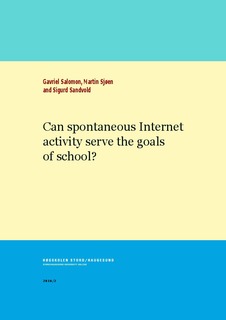| dc.description.abstract | The culture of the social media, usually engaged out of school, is fundamentally
different from that of the school. The differences can be reduced to a culture of spontanity,
absence of prescribed learning goals and voluntary participation vs. a culture
of goal-directedness, regimentation and involuntary participation. The question
arises whether the culture of social media, not just as ICT tools, can become part of
school learning while retaining their uniqueness, and while school retains its. The
purposes of this study are to explore (a) To what extent do students actively participate
in the use of the Facebook, as suggested? and (b) To what extent did their participation
affect their prejudices, stereotypes of and attitudes toward the «other side»?
Two groups of students were selected for the study – an 11th grade class from a
native Norwegian neighborhood school in Bergen and a similar class, as similar as
possible, from a new immigrants' neighborhood school. The students interacted a
great length of time. Two similar versions of a questionnaire were created, one for
the native Norwegian class and one for the immigrant class. The study did not yield
any results that support the assumption that the use of Facebook as a spontaneous
tool for out of school intergroup elaboration and reflection on school material would
lead to significant changes of stereotypes, attitudes, desired social distance or
feelings toward the «other side»: New immigrants to Norway. The changes we
detected were an increase of negative view of immigrants by the native Norwegian
group, and an increase in immigrants' willingness for social contact with native
Norwegians. These findings are discussed. | nb_NO |
